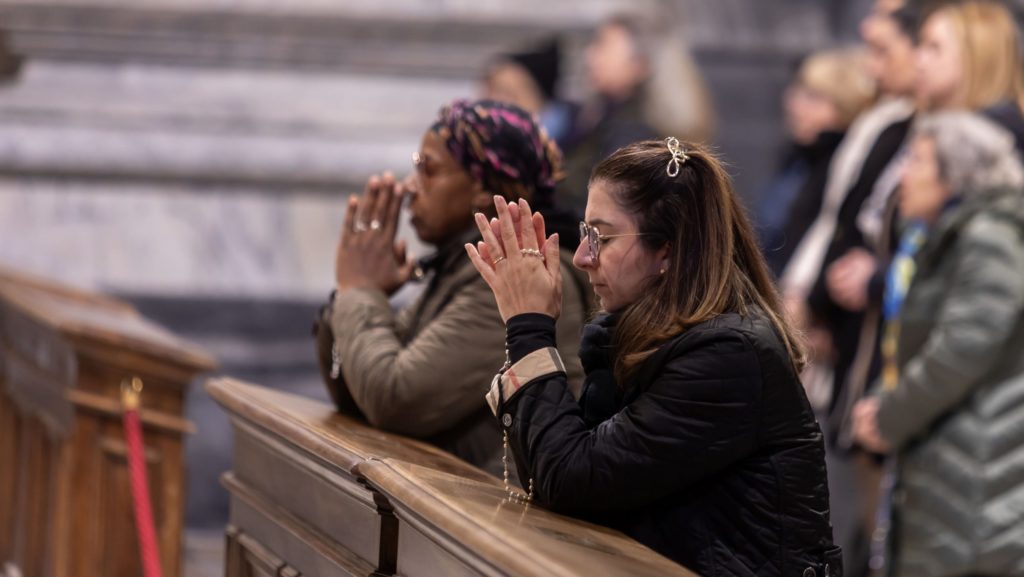Pope Francis' condition has shown a slight improvement, which, however, is still critical, the Vatican said.
"There were no episodes of asthmatic respiratory crisis" Feb. 24, the Vatican said in its evening medical bulletin, and "some laboratory tests improved."
He is still on supplemental oxygen through a nasal cannula, "albeit with slightly reduced flows and (a lower) percentage of oxygen," it said.
Doctors are no longer concerned about his mild renal insufficiency, which is still being monitored, the bulletin said.
"The critical nature of the Holy Father's clinical condition shows slight improvement," it said.
However, because of "the complexity of his medical case," doctors are not ready to change his prognosis, which remains reserved.
"In the morning, he received the Eucharist, while in the afternoon he resumed work activities," the bulletin said. A Vatican source said this would be very light activities such as reading and signing documents.
The pope is still able to get up and move around, the source added, but he has not been receiving any visitors. And he has been eating normally.
"In the evening, he called the priest of Gaza parish to express his paternal closeness," the bulletin said. The pope, who phoned Holy Family Parish every evening before he was hospitalized, called to thank the pastor and parishioners for sending him a video greeting.
"Pope Francis thanked all God's people who gathered to pray for his health in recent days," it added.
Cardinal Pietro Parolin, Vatican secretary of state, was to lead a recitation of the rosary at 9 p.m. Feb. 24 in St. Peter's Square along with cardinals living in Rome, members of the Roman Curia and the local faithful. The evening prayer was expected to be held each night.
The prayer is a moment "to show the closeness of the church to the pope and all who are sick," said Matteo Bruni, director of the Vatican press office.
Dioceses worldwide were also joining in praying the rosary for the pope and everyone facing illness.
Earlier in the day, the Vatican press office said the pope was in "good spirits" and continuing his treatment.
Pope Francis, who celebrated his 88th birthday in December, has been an inpatient at Rome's Gemelli hospital since Feb. 14; his doctors diagnosed double pneumonia.
The Vatican's morning update on the pope's condition Feb. 24 was as brief as all the morning statements have been; it said, "The night passed well, the pope slept and is resting."
Pope Francis' condition remained "critical" the evening of Feb. 23, his doctors had said, with blood tests showing "initial, mild renal insufficiency, at present under control."
The pope was given two units of packed red blood cells, which successfully raised his level of hemoglobin, Feb. 22. However, it added, his platelet count was still low.
The pope had a "respiratory crisis" Feb. 22, which is when he began to consistently use supplemental oxygen through a nasal cannula.
"The complexity of his clinical picture, and the need to wait for the drug therapies to provide some result, dictate that the prognosis remains reserved," the doctors had said late Feb. 23.

